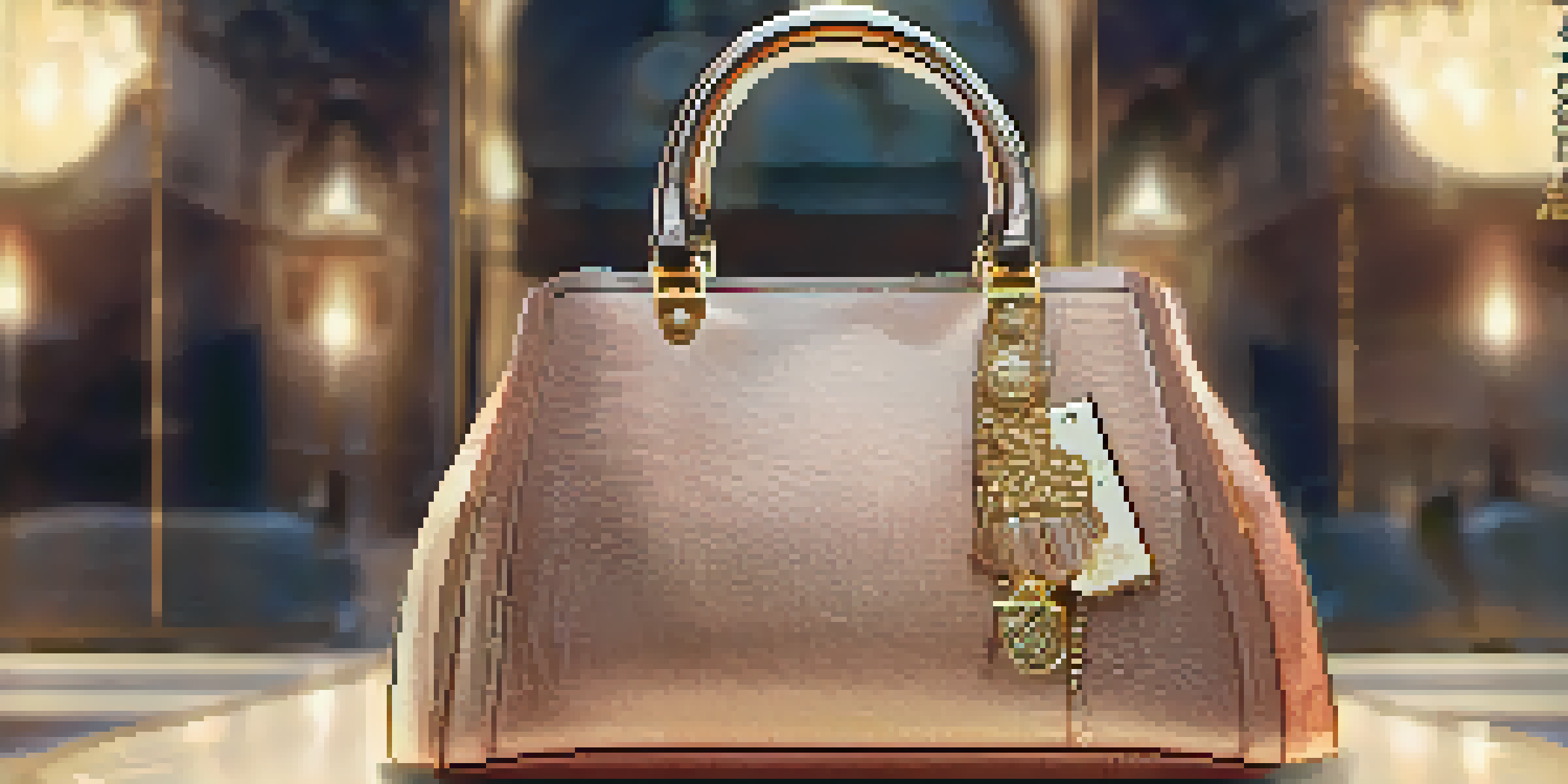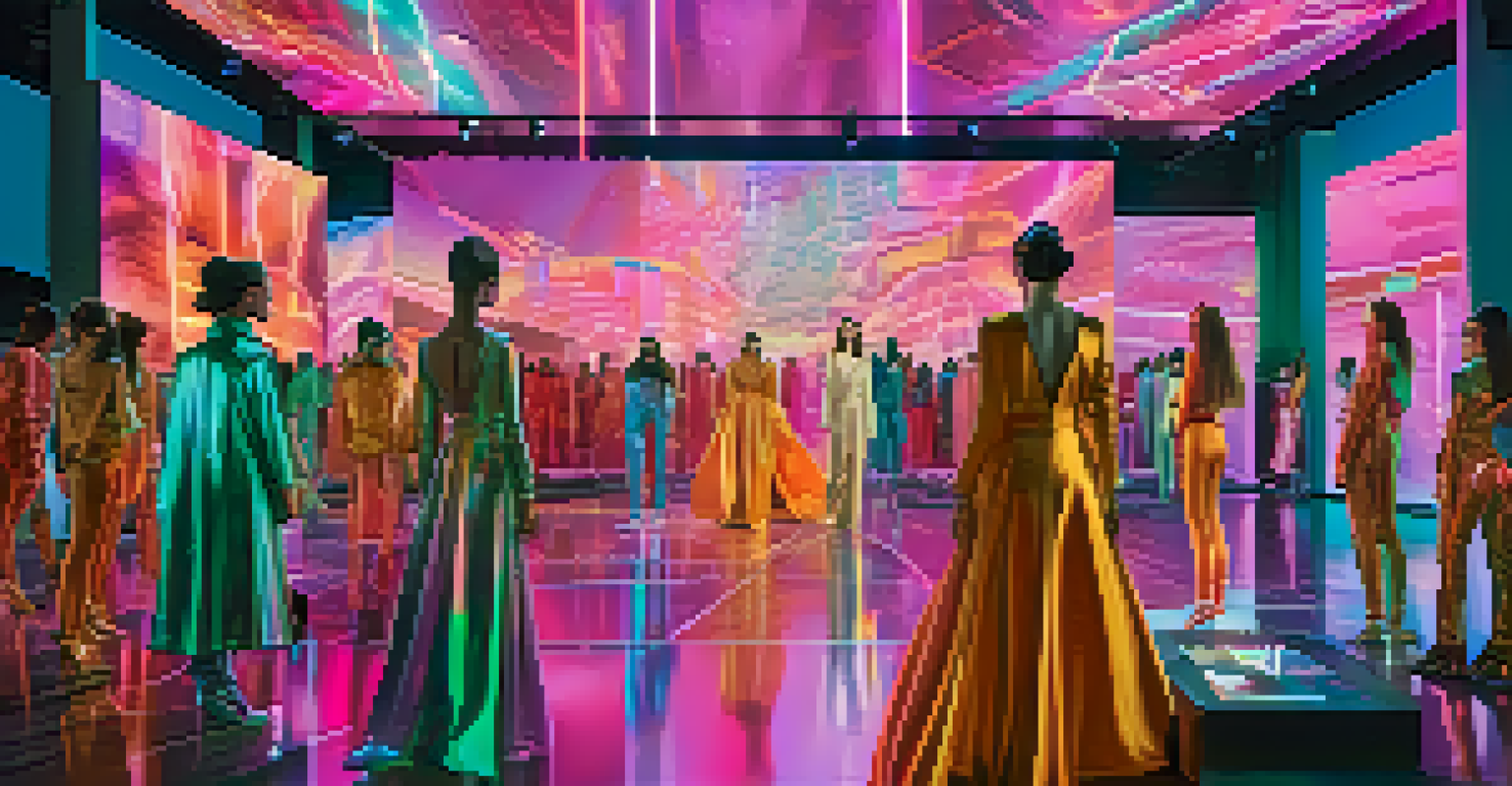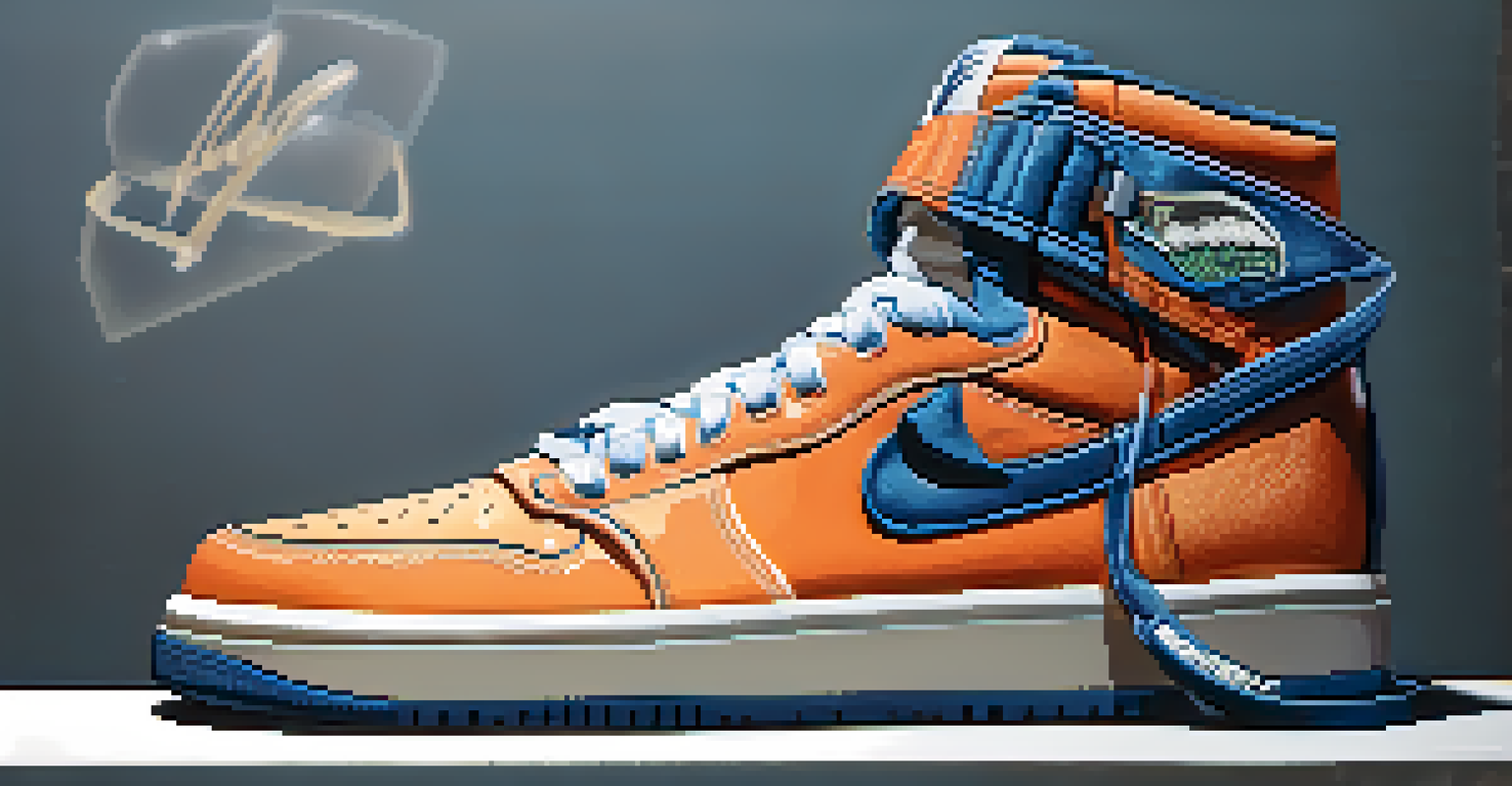NFTs in Fashion: Authenticity and Ownership in Style

Understanding NFTs: The Basics Explained
NFTs, or non-fungible tokens, are digital assets that represent ownership of unique items on a blockchain. Unlike cryptocurrencies like Bitcoin, which are interchangeable, each NFT is one-of-a-kind. This uniqueness is what makes them particularly appealing in sectors like fashion, where authenticity is paramount.
The future of fashion is not just about clothing; it's about the stories and authenticity we create around them.
Imagine owning a limited-edition sneaker that no one else can claim. With NFTs, fashion brands can create digital certificates of authenticity that verify the ownership and originality of a product. This technology opens up a new world for collectors and enthusiasts alike, allowing them to buy, sell, and trade these digital tokens securely.
As NFTs continue to gain traction, understanding their role in the fashion industry becomes essential. They represent a shift towards a more transparent and verifiable system, ensuring that consumers can confidently invest in and showcase their prized fashion pieces.
The Role of Authenticity in Fashion
In the fashion world, authenticity often dictates value. From high-end brands to streetwear labels, the assurance that a product is genuine plays a critical role in consumer trust. With the rise of counterfeits, consumers are increasingly seeking ways to verify the authenticity of their purchases.

This is where NFTs shine. By providing a digital proof of authenticity, NFTs help combat counterfeiting, ensuring that what you buy is truly what you think it is. Think of it as a digital passport for your designer handbag, confirming its origin and ownership history.
NFTs Enhance Fashion Authenticity
NFTs provide a digital proof of authenticity, helping to combat counterfeiting and ensuring consumers invest in genuine products.
As brands embrace this technology, they not only protect their reputation but also enhance customer loyalty. When consumers know they can confidently invest in authentic pieces, they are more likely to engage with and support the brand.
Ownership Redefined: What NFTs Offer
Traditionally, ownership in fashion has been about possessing a physical item. However, NFTs are changing the narrative by enabling digital ownership, which can coexist with or even replace physical items. This concept may seem strange at first, but it opens up new avenues for fashion enthusiasts.
Digital ownership is the new frontier for fashion, blending creativity with technology in ways we've only just begun to explore.
Imagine owning a digital outfit that you can wear in virtual spaces, such as social media or gaming platforms. With NFTs, you can own and flaunt unique digital fashion pieces that others cannot replicate. This shift towards digital ownership not only caters to a growing online audience but also allows brands to experiment with creative designs.
Furthermore, NFTs can provide exclusive access to limited releases or special events, enhancing the ownership experience. The ability to blend physical and digital ownership offers a fresh perspective on how we think about fashion today.
Fashion Brands Embracing NFTs
Many fashion brands have already started to explore the potential of NFTs, and their innovative approaches are paving the way for the future. For instance, luxury brands like Gucci and Prada have launched NFT collections that celebrate their heritage while embracing cutting-edge technology. These initiatives not only attract tech-savvy consumers but also reinforce their positioning as trendsetters in the industry.
Streetwear brands are also jumping on the NFT bandwagon, creating hype around limited-edition drops that can only be purchased through digital tokens. This strategy fosters a sense of exclusivity and urgency, driving demand among collectors. The combination of fashion and technology creates a compelling narrative that resonates with younger audiences.
Digital Ownership Revolutionizes Fashion
NFTs redefine ownership by enabling consumers to possess unique digital fashion items that can coexist with or replace physical pieces.
As more brands adopt NFTs, we can expect to see a wider range of creative collaborations and innovative uses of digital assets in fashion. This evolution will shape the industry's landscape, encouraging traditional brands to rethink their strategies and embrace the digital revolution.
The Consumer's Perspective: Benefits of NFTs
For consumers, NFTs bring a host of benefits that enhance the shopping experience. First and foremost, they offer a sense of security, knowing that their purchases are verified and authentic. This assurance can significantly reduce the anxiety often associated with high-value fashion items.
Additionally, NFTs provide consumers with a way to participate in the fashion ecosystem more actively. Owning an NFT can grant access to exclusive content, events, and even limited product releases. For many, this added value transforms the act of purchasing into an engaging experience.
Moreover, the ability to resell NFTs on various marketplaces adds another layer of opportunity for consumers. Just like any collectible, the potential for appreciation in value means that investing in NFT fashion pieces could be both a stylish and savvy financial decision.
Challenges and Concerns in the NFT Fashion Space
While NFTs in fashion offer exciting opportunities, they are not without challenges. One major concern is the environmental impact of blockchain technology, particularly proof-of-work systems that require substantial energy to operate. As sustainability becomes increasingly important to consumers, brands must consider the ecological footprint of their NFT initiatives.
Additionally, the volatility of the NFT market can create uncertainty for both brands and consumers. Prices can fluctuate dramatically, leading to speculation and potential losses. For those new to the space, navigating this landscape can be daunting, emphasizing the need for education and transparency.
Fashion Brands Leverage NFTs
Many fashion brands are embracing NFTs to create exclusive offerings and engage tech-savvy consumers, driving innovation in the industry.
Lastly, as the technology evolves, legal considerations around ownership rights and intellectual property come into play. Brands must ensure they have the right systems in place to protect their designs and the interests of their consumers while fostering a thriving NFT marketplace.
The Future of Fashion with NFTs
The intersection of NFTs and fashion is still in its early stages, but the potential for growth is immense. As technology advances and consumer acceptance increases, we can expect to see a deeper integration of digital assets into the fashion industry. This evolution could redefine how we perceive ownership, authenticity, and even creativity in fashion.
Imagine a future where every piece of clothing comes with an NFT, providing a complete ownership history and authentication. This could transform the resale market, creating a more transparent and secure platform for buying and selling pre-owned fashion items. Collectors and enthusiasts would have greater confidence in their investments.

Ultimately, NFTs represent a shift in mindset for both brands and consumers. As we embrace this new era of digital ownership, the fashion industry will likely evolve in ways we cannot yet fully comprehend, making it an exciting space to watch.